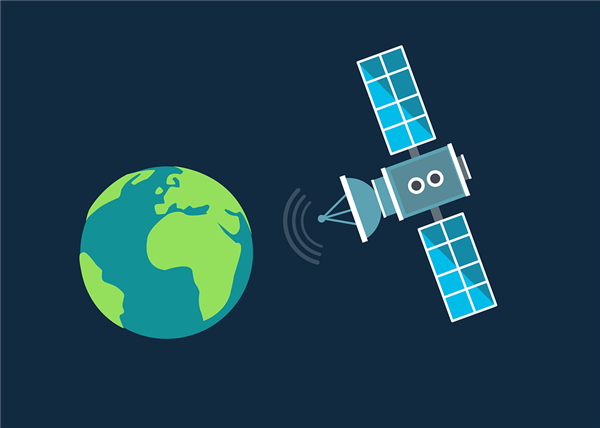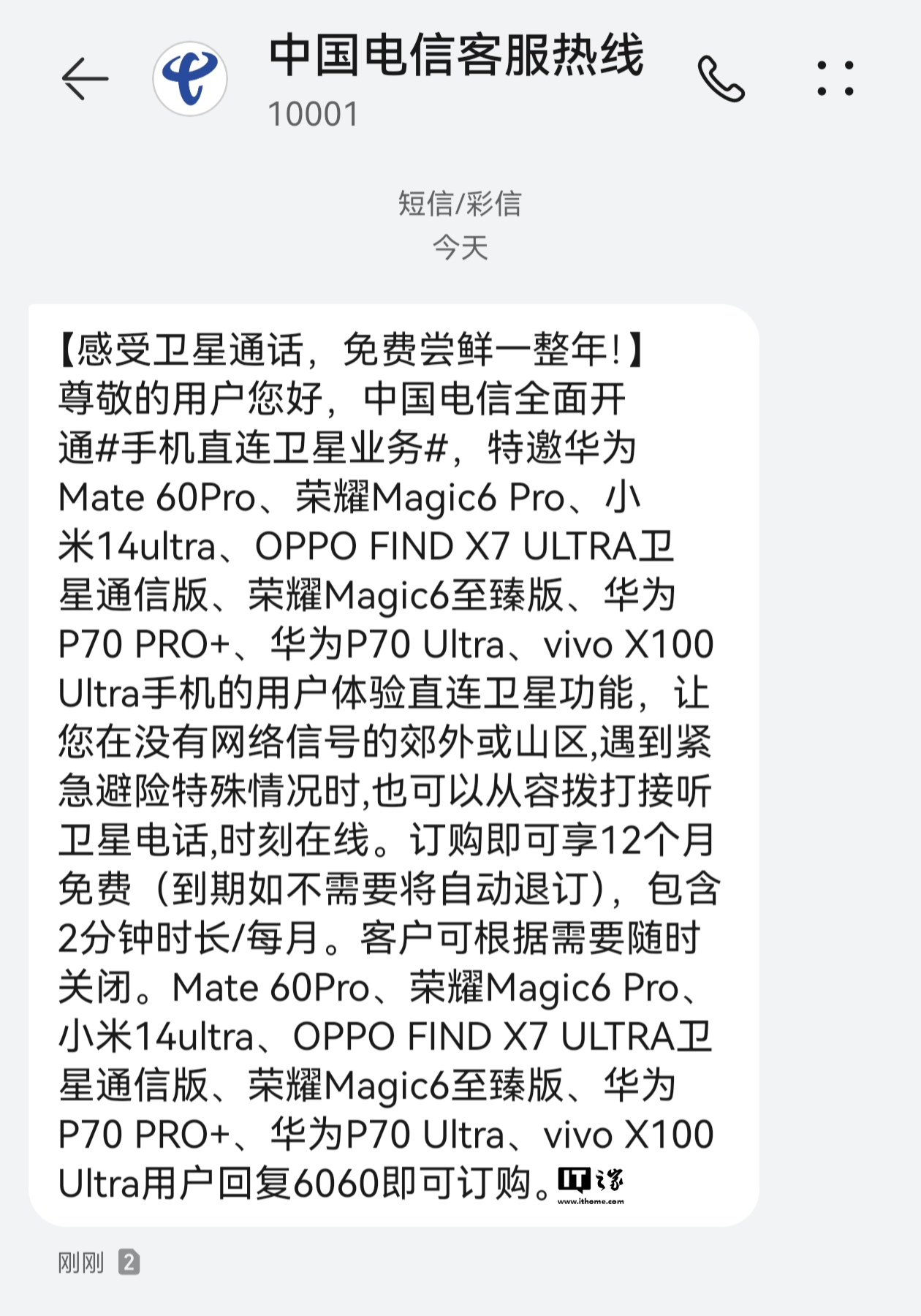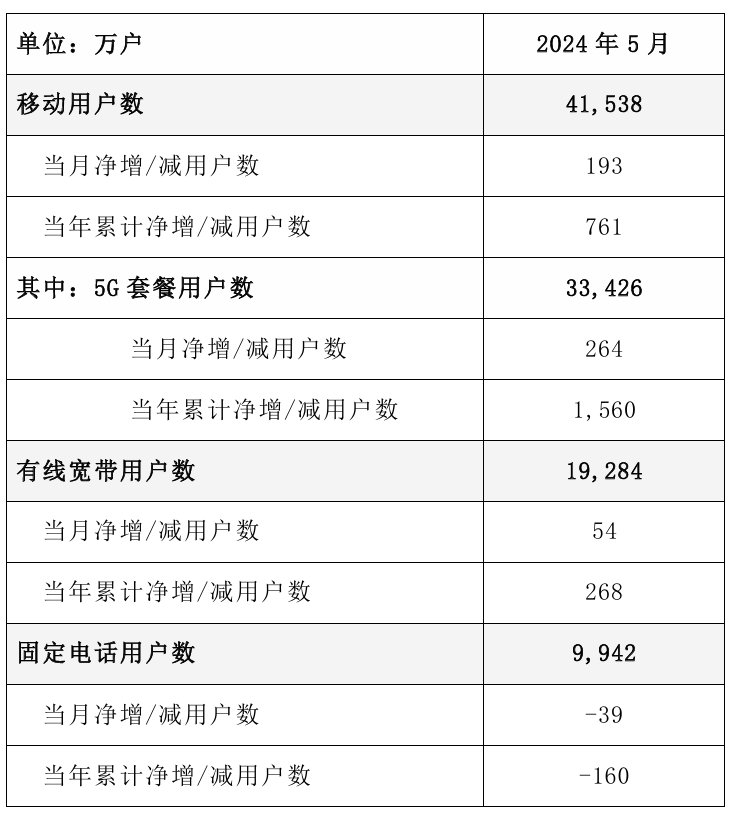 Mobile Tutorial
Mobile Tutorial Mobile News
Mobile News Why do China Unicom, China Telecom and China Mobile limit my internet speed when I pay on time every month?
Why do China Unicom, China Telecom and China Mobile limit my internet speed when I pay on time every month?According to news on January 16, there is a particularly hot topic, that is, some operators impose uplink speed limits on home broadband access users, and even cause local outages, which has caused quite a bit of controversy.
"If I pay my broadband fee on time every month, why should the operator limit my speed?" This is a question asked by many netizens.
In this complete buyer's market, why are operators willing to risk the loss of users and limit the uplink speed for users? Is it reasonable and legal for operators to do this? What should consumers do if they encounter speed limit issues?
It all starts with PCDN.
What is PCDN?
Simply put, PCDN is P2P CDN. It is a content distribution network (CDN) service built based on P2P technology by mining and utilizing massive fragmented idle resources of telecom edge networks. It is suitable for video on demand and live broadcast. , download and other business scenarios.
P2P is easy to understand, and CDN is actually not difficult. The core principle is to place the content as close to the user as possible, so that users can access the content source nearby, thereby obtaining a better user experience. The business model of CDN service providers is B2B2C, which provides a better experience to downstream C-side users and then collects money from the upstream B-side based on different standards of experience.
Therefore, they must have a large number of nodes close to users, most of which are leased. At the same time, they must purchase backbone network bandwidth resources from operators to ensure user experience. The competition in the CDN market is very fierce and it is a typical low-profit market. All the money is used to buy basic resources.
For some new entrants, they must find a way to break the situation, and PCDN appears! PCDN is not difficult from a technical perspective. What is difficult is forming a "workable" business model.
From a technical perspective, PCDN can be implemented using SDK or dedicated intelligent hardware.
Users can embed the SDK in their own routers, but this is not suitable for novice users; players such as Xunlei Netxin Cloud, Wanke Cloud, Money Making Treasure, JD Cloud Wireless Treasure, Dim Sum Cloud, etc., use The relatively low price provides users with a higher-configuration router, and it also uses the slogan "You can make money while sleeping."
For example, Baidu Netdisk will give you points that can be redeemed for membership, JD Cloud Wireless Bao will give you points that can be redeemed for Jingdou and JD E Cards, and Wanke Cloud is more simple and crude, giving money directly.
For example, I learned from the official website of Dianxin Cloud that its revenue is calculated according to the 95 billing rule and is settled according to the contribution value of the traffic. Using a 100M uplink broadband as an example, China Unicom and Telecom can obtain a daily revenue of 6 -8 yuan, and you can earn 3-4 yuan per day through mobile. The larger the bandwidth, the higher the performance and the higher the income.
For ordinary users, they may think this is a good thing. They can use "idle bandwidth" to earn "after-sleep income" and earn a cup of "milk tea money" every week. There may be more and more users. More users join it, forming new CDN nodes. These nodes are not computer rooms but routers/intelligent hardware.
Although the network bandwidth and performance provided by a single node are relatively limited, if the number of nodes is large enough and exceeds a certain threshold, it may enter a positive business cycle.
It is also of great benefit to CDN service providers or OTT service providers. Taking iQiyi as an example, the HCDN developed by it is turned on by default to "free" users' uplink bandwidth to help enterprises control network bandwidth costs.
Playing monopoly and pursuing hegemony? no!
Those who gain will lose, and in this PCDN game, operators are the victims.
Whether it is a mobile network or a fixed network, operators have always been faced with the problem of traffic revenue scissors, and the traffic growth rate far exceeds the revenue growth rate. In order to cope with traffic growth and ensure user experience, operators need to continuously upgrade and transform basic networks, resulting in high CAPEX.
Taking home broadband users as an example, the performance of the main equipment in the existing network is asymmetrical in uplink and downlink, with large downlink and small uplink. If the PCDN uplink traffic is highly concurrent, it will have an impact on other users in the community. ; Moreover, these uplink traffic will eventually converge to the metropolitan area network and backbone network, increasing network operation and maintenance costs and bringing new capacity expansion pressure.
At the same time, the proliferation of PCDN will also affect the government and enterprise businesses of operators. Take the CDN business as an example. The largest capital expenditure for CDN service providers is to purchase backbone network bandwidth resources from operators. PCDN may lead to loss of potential revenue. Taking OTT service providers such as iQiyi as an example, it will also cause a loss of revenue. drain.
Of course, there may be many users who believe that freedom is freedom without prohibition. PCDN has touched the cake of operators, and operators have adopted speed limits and local suspensions to play monopoly and seek hegemony. But this view is not correct.
First of all, operators act in accordance with the rules. When ordinary users apply for home broadband services, the agreement usually clearly stipulates that home broadband cannot be used for commercial purposes, and the existence of PCDN already falls within the scope of commercial purposes.
Secondly, according to the requirements of the "Notice of the Ministry of Industry and Information Technology on Cleaning up and Regulating the Internet Network Access Service Market", enterprises and individuals without corresponding telecommunications business licenses are not allowed to operate IDC, ISP, CDN and other businesses for personal use. Manufacturers operating PCDN services provide video boxes or cloud disk equipment at low prices or free of charge, and aggregate the upstream bandwidth of home broadband for profit, which in fact forms an illegal CDN distribution business.
Third, if the PCDN box used by an individual contains illegal, pornographic, fraud-related videos, games, etc., and these contents are uploaded to others for access by the manufacturer using broadband, they will bring consequences to themselves. Legal risks of spreading illegal content.
At the same time, there is also a view that since PCDN is illegal, why not directly ban the PCDN operating platform? That's because many service providers currently providing PCDN services have CDN operating licenses. They can provide CDN services reasonably and legally, but using the PCDN method is another matter.
Written at the end
In this heated discussion on PCDN management and control, the core contradiction lies in the embarrassing identity of the operator, who is both an athlete and a referee. This resulted in that although it had legal support and was bound by agreements, it was still criticized, which had a negative impact on the corporate image. To solve this problem, clearer rules and standards are needed.

The above is the detailed content of Why do China Unicom, China Telecom and China Mobile limit my internet speed when I pay on time every month?. For more information, please follow other related articles on the PHP Chinese website!
 中国电信天通卫星覆盖香港!小米14 Ultra官宣支持双向卫星通信May 09, 2024 am 09:01 AM
中国电信天通卫星覆盖香港!小米14 Ultra官宣支持双向卫星通信May 09, 2024 am 09:01 AM5月8日消息,中国电信今天在中国香港召开了手机直连卫星业务落地发布会,正式宣告以天通卫星系统为依托的手机直连卫星业务落地香港。根据小米手机官微消息,目前小米14Ultra已经支持在中国香港使用双向卫星通信。用户使用中国电信、中国电信(香港)SIM卡,且开通手机直连卫星业务即可。值得注意的是,小米14Ultra需为中国大陆销售的版本,且系统版本升级为V1.0.9.0。因为小米14Ultra此前仅在内地销售版支持卫星通信,其他版本在硬件上不支持该功能。仅支持电信卡也是因为天通卫星由中国电信运营。据悉
 中国电信直连卫星业务免费体验 1 整年:华为、荣耀、小米、OPPO、vivo 旗舰手机用户均可订购Jul 18, 2024 am 04:29 AM
中国电信直连卫星业务免费体验 1 整年:华为、荣耀、小米、OPPO、vivo 旗舰手机用户均可订购Jul 18, 2024 am 04:29 AM本站7月11日消息,随着各大厂商都推出了自家支持卫星功能的旗舰手机,中国电信也随之开启了一项新的推广活动。简单来说,中国电信用户现在办理直连卫星功能可享1年免费优惠(每月赠费10元,连续赠送12个月),订购后自动带出“直连卫星功能”(本站注:每月可提供2分钟的免费卫星通话时长),具体细则可能因合约不同而不同。当然,这12个月的赠费包一年后到期自动退订,而这10元/月的直连卫星功能长期有效,届时用户如不再需要仍需自行退订。目前支持手机直连卫星功能的手机包括:华为Mate60Pro华为P70Pro+
 中国电信推出搭载天翼云电脑系统的TYN14BC笔记本Dec 28, 2023 pm 06:39 PM
中国电信推出搭载天翼云电脑系统的TYN14BC笔记本Dec 28, 2023 pm 06:39 PM本站12月26日消息,天翼终端推出了一款天翼云TYN14BC笔记本电脑,重量1.45kg,厚度16.6mm,搭载天翼云电脑系统。天翼云TYN14BC笔记本电脑支持180°开合角度,采用CNC工艺金属外壳,以及双热管双风扇散热。天翼云TYN14BC笔记本电脑采用雾面屏设计,配有多种护眼模式,更多具体参数暂未公布。本站查询获悉,天翼云电脑服务可选多个配置版本,价格为60元/月起,用户通过终端云电脑应用即可快速访问调取云端资源,满足日常办公、软件开发、网上学习等使用场景需要。
 中国电信 2024 年 5 月 5G 套餐用户数 3.34 亿户,当月净增 264 万户Jun 20, 2024 pm 08:16 PM
中国电信 2024 年 5 月 5G 套餐用户数 3.34 亿户,当月净增 264 万户Jun 20, 2024 pm 08:16 PM感谢网友我抢了台的线索投递!6月20日消息,中国电信今日公布2024年5月主要运营数据,移动用户数4.1538亿户,当月净增193万户,当年累计净增761万户。汇总信息如下:5G套餐用户数3.3426亿户,当月净增264万户,当年累计净增1560万户;有线宽带用户数1.9284亿户,当月净增54万户,当年累计净增268万户;固定电话用户数9942万户,当月净减39万户,当年累计净减160万户。作为对比,中国电信4月移动用户数4.13亿户,新增180万户;5G套餐用户数3.32亿户,新增用户290
 中国电信推出全新eSIM手表服务费,安卓和Apple Watch用户需关注Dec 28, 2023 am 08:45 AM
中国电信推出全新eSIM手表服务费,安卓和Apple Watch用户需关注Dec 28, 2023 am 08:45 AM近期有网友反映,中国电信已经重新启动了eSIM手表一号双终端业务的办理流程,以便为广大用户提供更多便捷的选择根据我们在中国电信App上的查询,目前可以顺利办理eSIM手表业务。此外,客服明确表示eSIM一号双终端业务已经重新恢复办理据小编所了解,对于使用安卓手表的用户而言,他们可以在中国电信App的“eSIM办理”页面上选择手表品牌和型号进行办理。而苹果AppleWatch用户则需要在手表上进行开通操作中国电信一号双终端业务的资费方面,服务费定价为每月10元。对于主副卡套餐用户,他们可以共享主套
 天翼铂顿 S9:搭载紫光展锐 T820芯片的国产力作 明日发布Nov 09, 2023 am 11:41 AM
天翼铂顿 S9:搭载紫光展锐 T820芯片的国产力作 明日发布Nov 09, 2023 am 11:41 AM11月9日消息,中国电信宣布,天翼铂顿S9卫星手机将于11月10日在中国电信2023数字科技生态展的新品发布区隆重推出。在正式发布之际,官方为这款备受期待的新机不断进行预热宣传。据了解,天翼铂顿S9将搭载紫光展锐T820芯片,并配备VC液冷散热技术,其标语为“国产芯片超强性能”。有关紫光展锐T820芯片的介绍显示,它拥有8核CPU处理器,性能堪比高通骁龙765G和华为麒麟820。此外,紫光展锐T820还搭载ArmMali-G57MC4GPU,运行频率高达850MHz。该芯片采用了1+3+4的三丛
 中国电信发布全球首个单波 1.2Tbit / s、单向超 100Tbit / s 空芯光缆传输系统现网示范工程Jun 23, 2024 am 12:25 AM
中国电信发布全球首个单波 1.2Tbit / s、单向超 100Tbit / s 空芯光缆传输系统现网示范工程Jun 23, 2024 am 12:25 AM6月22日消息,6月20日,中国电信联合长飞公司、中兴通讯和华信设计院在下一代光传送网产业与技术标准推进委员会(CCSATC618)暨新一代光传送网发展论坛(NGOF)“智算时代下的全光网络技术与应用”研讨会上,发布了全球首个单波1.2Tbit/s、单向超100Tbit/s、传输距离达20km的空芯光纤光缆传输系统现网示范工程。本次现网示范依托“基于新型光纤的超宽带光传输系统与应用示范”国家重点研发计划项目,在中国电信杭州智算中心和杭州电信义桥IDC数据中心之间完成空芯光缆现网部署和大容量传输。
 中国电信柯瑞文:把握智能化趋势,深化融合应用创新,开启5G发展新阶段Jun 26, 2024 pm 03:35 PM
中国电信柯瑞文:把握智能化趋势,深化融合应用创新,开启5G发展新阶段Jun 26, 2024 pm 03:35 PM6月26日,在2024年世界移动通信大会上海(MWC上海)开幕式上,中国电信董事长柯瑞文作题为《把握智能化潮流,深化融合应用创新,开启5G发展新篇章》的主旨演讲,分享了中国电信在5G高质量发展的思考和实践。柯瑞文表示,本次大会正值中国5G商用5周年的里程碑时刻。五年来,中国5G在科技创新、网络建设、用户发展、产业应用等方面不断取得突破,已将发展蓝图一步步变为生动现实,引领和带动全球5G产业逐步走向成熟。“第五代移动通信系统(5G)关键技术与工程应用”项目获得中国国家科技进步奖一等奖,这是对5G创


Hot AI Tools

Undresser.AI Undress
AI-powered app for creating realistic nude photos

AI Clothes Remover
Online AI tool for removing clothes from photos.

Undress AI Tool
Undress images for free

Clothoff.io
AI clothes remover

AI Hentai Generator
Generate AI Hentai for free.

Hot Article

Hot Tools

EditPlus Chinese cracked version
Small size, syntax highlighting, does not support code prompt function

Safe Exam Browser
Safe Exam Browser is a secure browser environment for taking online exams securely. This software turns any computer into a secure workstation. It controls access to any utility and prevents students from using unauthorized resources.

Dreamweaver CS6
Visual web development tools

SublimeText3 Linux new version
SublimeText3 Linux latest version

mPDF
mPDF is a PHP library that can generate PDF files from UTF-8 encoded HTML. The original author, Ian Back, wrote mPDF to output PDF files "on the fly" from his website and handle different languages. It is slower than original scripts like HTML2FPDF and produces larger files when using Unicode fonts, but supports CSS styles etc. and has a lot of enhancements. Supports almost all languages, including RTL (Arabic and Hebrew) and CJK (Chinese, Japanese and Korean). Supports nested block-level elements (such as P, DIV),





